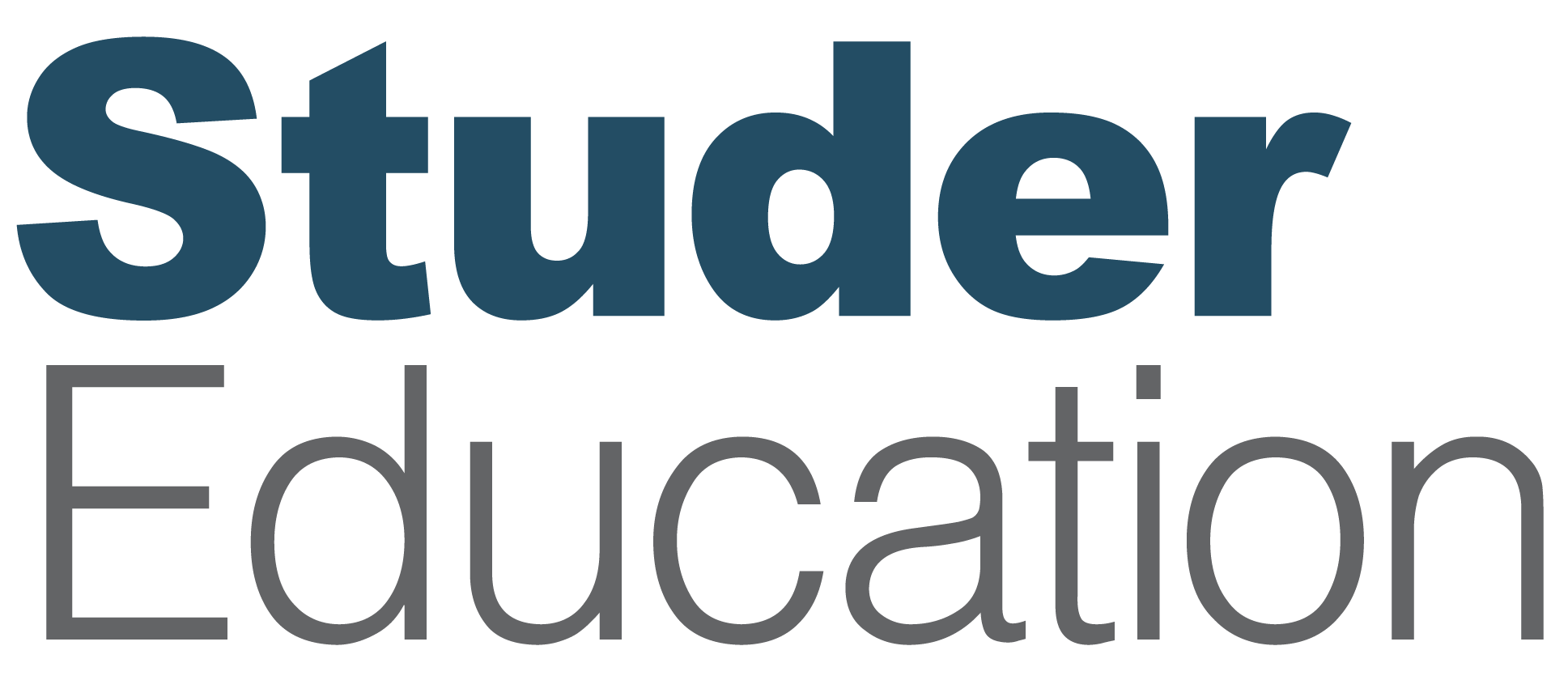In this Accelerate Your Performance podcast episode, Dr. Janet Pilcher invites Dr. Ryan Carpenter, Superintendent of the Estacada School District, to discuss his efforts at enhancing communication at all levels in his district. Effective communication is a key part of an improvement mindset that extends to the workplace and the community, and Dr. Carpenter has excelled at this. Listen as Dr. Carpenter shares how he has utilized surveys to gather input from employees, parents, and students and how he has rolled out the results.
Introduction:
[Intro music plays in the background.]
Janet Pilcher: Hello everyone. Welcome to today’s Accelerate Your Performance podcast. I’m your host, Janet Pilcher. Thank you for tuning into our show today. This podcast is all about leadership, and I don’t mean leadership as a position. It’s about how we can all see great leadership in action, so that we can all be leaders in our organizations.
Leadership is for everyone, and the focus of leadership is connected to the Nine Principles framework highlighted in my new book, Hardwiring Excellence in Education. Joining us, and back on our podcast today, is Superintendent of Estacada school district, Dr. Ryan Carpenter.
Ryan will be joining us for a two-part series. Both weeks I’ll talk with Ryan to tell the story behind the story in chapter 8 of Hardwiring Excellence in Education. It’s focused on principal 8, Communicate at All Levels. People know what they do matters. That’s what that principle means, and communication is a cornerstone to Ryan’s leadership in the Estacada school district in Oregon. Ryan practices all the 9 principles, therefore our conversation show how principle 8 threads through all other principles.
Today, part one, we focus on conversations about leadership, leaders being the model for communicating with keywords at key times. Specifically, Ryan shows how he uses many tools to reach varying audiences and does so with great purpose that is evidence based and intentional.
On our show today, we also focus on gaining input from surveys and rolling out the results to create action plans that guide leaders on how to monitor continuous improvement that’s all about communication. And yes, we’ll also talk about how Ryan and his team of leaders and employees celebrate the wins, celebrate those things that are working well. These tactics are highlighted in chapters 3 and 5 in Hardwiring Excellence in Education, and chapter 8 principal 8 really threads through those two chapters as well. In fact, it threads through all of the principles.
Next week, Ryan and I discuss how communication is a thread that runs through these additional tools and tactics aligned to the Nine Principles. We’ll end with connecting back to leaders going first and being that model for other leaders and employees.
Here’s a little reminder about Ryan. He has served as the Superintendent of the Estacada school district since 2017. For more than four years, the Estacada school district has been in pursuit of sustaining high levels of improvement science methodology and has been a partner with Studer Education since 2019. He is the recipient of many leadership awards. One notable one is Estacada schools achieved the highest honors from its employees in 2020 and 2021. Estacada was selected for the Oregonians top workplaces in the state of Oregon.
It’s with great pleasure that I have the opportunity to welcome back Ryan. So good to see you and so good to have you back on our show today. Thank you for being with us.
Interview:
Ryan Carpenter: Oh, thank you so much, Janet. It’s always such a pleasure to be a part of this, and hello, again, to all the great listeners. I’m a listener as well, and I learned from each and every single person on your podcast, and so it’s always just great to be back.
Janet Pilcher: Thank you so much, and I do too. This is really a lot of fun for me, Ryan, because I get a chance, you know, to talk to so many of our partner leaders. And maybe I wouldn’t get that chance unless I did the podcast, so it is great learning for me as well and just love the work that we all are doing together around the country to really make a positive impact with students and families and our communities.
So, you’re a model leader. You’ve been a leader who’s been recognized and as we’ve talked about before, you do all of the Nine Principles. But I specifically highlighted you in the communication focused principal 8, Communicate at All Levels.
And I know we’re gonna talk about more than that, but I really want listeners to hear your story around how focused you are on communication. So, let’s start with your ability to engage with and inform your school community. So, if you don’t mind, Ryan, would you share with us what you do to, just in general, enhance your communication in your school and in your community.
Ryan Carpenter: Yeah, well, thank you, and communication is essential for community success, school success and professional success as well. At the Estacada school district when we started our improvement journey, you know, we were a typical school district where, you know, our communication was lacking.
Feedback from parents was, “We’re just not hearing enough from our teachers, our schools, our school district.” And so, ultimately that led to the community telling our story for us, true or not true on Facebook or Twitter, or any other social media posts that we’re all so familiar with. Things were just being told about us. And so, we realized early that communication was going to be a very critical tool. As we began to tell our side of the story to our community and celebrate wins.
And really how I got started in this journey, which is to your original question. You know, after reading your book Maximize Performance that led me to a new book of Hardwiring Excellence, which was written by Quint Stutter, and inside Hardwired Excellence Quint kind of talked and gave some ideas and tools of how to reach out to internal groups and external groups.
And so really, through the student model is how we really started with implementing keywords at key times and employee forums, which comes from Studer’s work in the medical profession, and your work also in the educational profession. And so, I took a risk out the gate and to be a great communicator, you have to be okay with being vulnerable. You have to be okay with leading first.
And so, what we started doing was we created. I just started filming myself every single week and we created a new communication platform called a Super 60 Seconds. Which is 60 seconds with the superintendent, and you can go to Estacada schools on our YouTube, we do it weekly, so you can see some ideas of what it looks like from our perspective.
And Super 60 Seconds was really an external public communication, where we really just talk about hot topics, and we try to do it in under 2 minutes, even though it’s 60 seconds. And the reason for that is it’s a quick hitter that our parents and external community can see, and they’re in full understanding of what the hot topics are coming up inside our school district, and that, I would say, has been our most successful communication improvement.
I’ve had so many community members come up to me and I’d introduce myself, “Hello, I’m Ryan Carpenter. I’m the superintendent.” And they’re like, “Oh, yeah, I’ve seen your videos.”
And that’s just such a great way to build a relationship with your community with really little effort. It’s that 80/20 principal, right? This is a little bit of work that’s doing huge leverage communication for our school district that became so popular, as you can imagine.
Then the employees were starting to demand that they wanted their own internal communication of the same sort, and that’s how we created Key Words at Key Times. And so again, every single week, we shoot just a little 2-minute video to our employees about the week that’s coming, hot topics, and decisions that might be coming from the superintendent’s office.
And so also, we do monthly employee forums, which is virtual, and we do monthly Facebook lives. And I do wanna talk about that because that’s a scary wild west in the real world of Facebook.
Janet: [Laughs] Yeah.
Ryan Carpenter: And that also took some risks because you just have no idea what questions are gonna be firing at you. But it is such a tremendous platform to tell your story.
If you’re being honest, if you’re sharing data, and if you’re truly having a great two-way conversation, it can be wonderful. And for the most part, people truly are respectful, because they know that in some cases it’s the only opportunity that they’re gonna get to have dialogue and interaction with their leader, and that has been so great for us. And so then ultimately, we ask our building principles just the same to create that communication.
But communication is kind of how we started to tell our story, share hot topics. And if you want to be a leader that is asking your leadership team to be great communicators, it’s got to start with you first, and that’s how I started with the Super 60 Seconds.
And if you know me, and I know a lot of people who are listening do, I’m not an ice breaker guy. I’m not a goofy guy, like I’m an introvert. This is outside of my comfort zone, to do these kinds of things. But it makes such a big difference for your community and your ability to communicate effectively inside your school district or your organization.
Janet Pilcher: Yeah. And you know, Ryan, what’s hitting me? As you’re talking, you know the actions that you took, the tactical things that you did, you know, they were very intentional, very intentional.
Ryan Carpenter: Yes.
Janet Pilcher: Structured and organized. Right? You know, it’s not just we’re just gonna communicate out there, but we have a method in the way that we’re going to do this. And I’m sure that took conversation with your leaders, and input in order to get to that point of making those decisions.
Ryan Carpenter: Absolutely. It first of all, just took the ability to improve over time, but it was also important to start getting good and meaningful data to be able to share back out to the community, because it’s one thing with anecdotal conversation. But when you’re able to say, “Hey, we’ve improved this by this, and here’s how this is improving or benefiting you.” or, “Here’s what we’re doing about this problem.”
Maybe that the data that you’re looking at is a systems or a root cause problem to be able to share the data and then be open and honest about what you’re going to do because of the data has really made it a very specific, intentional, and poignant conversation to our community.
Janet Pilcher: Yeah, so good. And you know, as we, as you think about other intentional actions that you took, the voice of employees, parents, and students, obviously, from what you’re talking about, is important to you. And so, you’ve used our surveys to gather that input, rolling them out and getting those results. So, you know, can you talk a little bit about how you’ve done that, and the benefits of that type of communication and feedback for decision making?
Ryan Carpenter: Well, this is, I think, the X factor in really building an improvement culture inside your organization and collecting voice of the people who are inside the systems, and experiencing the systems is paramount to success, and having validated data through Studer Education that is also nationally normed, is also essentially vital.
Just to see how are you doing in conjunction with other school districts embarking in the same innovative approach to being a systems thinking organization.
And so, in the Estacada school District Janet, as you know. We conduct 4 surveys twice a year. Parent satisfaction, which really measures, you know, how satisfied our parents are to send their children to our school.
In today’s world, and I know people listen to this podcast across the country. So, some states are more prevalent in this than others, but school choice is becoming a very popular thing, and you’re naive if you’re a public-school administrator right now, and you don’t think that you have to put a product together that people choose to send their kids to. And so, parent satisfaction is critical in making sure that the product that we are offering and the service that we are offering to our community is one that they choose to do over a charter school, or a home school, or a church co-op, or so many other different choices for families.
We also, survey our employees twice a year, cause we wanna be a great workplace and a best place to work. We want our employees to be proud of where they work and tell others about how proud they are to work for the Estacada school district.
We survey our students twice a year to make sure that they feel welcome and ready to learn in an environment of their place, of their location. And then also we measure service excellence. We are committed to great customer service. And we wanna provide that great service to our parents, our leaders, and our employees.
And so, getting the data is only the first part. And what you do with the data is what becomes most important.
How many of you have taken surveys, but have never gotten to see the results of the survey that you took? Janet, I was, you know, traveling around with you. I think we were in Florida for a presentation, and I had a leader approach me after we were speaking on the stage together. And they said that they took over 4 surveys in the last 2 months and hadn’t seen any results or any feedback from that.
And that’s just so many organizations around the country where people are just throwing surveys at you. And really what that person who approached me was suffering from, was suffering from survey fatigue. And in the Estacada school district we are very intentional about our surveys, and so we administer those 4 surveys in October.
We then ask our leaders, which is to the second part of your question. We then ask our leaders, in the month of November to roll out each and every single one of those results publicly and transparently to our employees, to our parents, and to our students. And then, during the month of November, we ask each leader: that’s a principal, that’s the director of transportation, it’s the direction… Director of nutrition services, it’s organization wide.
We ask them to build action plans on their lowest performing number inside that survey, but then we also make sure that we celebrate the things that are going well. Because we always want to keep doing what the data is telling us to keep doing.
And so, in the month of November our leaders build those plans, and then they roll those plans back out to the people because the people are the ones who contributed their voice in the first place. They now have helped us build plans based on their feedback. And it’s important that we circle that loop one more time to say we got your feedback. Now we have a number. We asked you what we could do to improve it. Now we have a plan. Now, here’s what that’s going to look like in the next 90 days.
And so, in Estacada from the month of December to April is when we then execute on a 90-day improvement cycle of those very strategies that were co-created by the stakeholders who take the survey. And then we survey again in April, and we celebrate our successes, and then the circle starts all over again, and we love it. But surveys are critical, Janet, as you know, to our success.
Janet Pilcher: It really is. And you know, one thing I found over the years, Ryan, is, you know, just the answer to your quest, to the first question in terms of really building communication. But the concept of the key messaging the right words, the key, the way that we really be. We’re thoughtful about the way we create the words and the structure to that, the pre work that attaches to that communication. The survey rollout the survey and survey rollout process for input and action and improvement.
And then, you know, we’re not talking about these today, but the third, the third part of the extension with rounding, service rounding, and leader rounding.
Ryan Carpenter: That’s right.
Janet Pilcher: I’ve kind of come to over the last decade and learning, if we do those 3 things, and we with and building reward and recognition as part of that process. If we do those things, we’re gonna change the culture.
Ryan Carpenter: Amen. Yep, and it actually changes faster than you could imagine.
Janet Pilcher: [Laugh] Yeah.
Ryan Carpenter: By starting to just introduce those things. I hope that you’re buckled up because you literally shoot out like a rocket ship.
Janet Pilcher: [Laugh] That’s right.
Ryan Carpenter: Yeah.
Janet Pilcher: Yeah. I just appreciate it, you know, the conversation because in order for us to really execute well and to achieve the goals we want to achieve. You know what we’ve talk- what we’re talking about today is foundational to building that environment where we can and really accelerate and thrive.
And I love the other thing. I love what you said. And we could probably have a whole episode on this, Ryan, and maybe we’ll come back to it. But you know, choice is real. Parent choice is real.
Ryan Carpenter: Yeah
Janet Pilcher: And we’re down that path. And, you know, districts who really began to, I don’t necessarily think, embrace it, but understand it, and function in a way that, regardless of whether it was there or not, we want parents to choose us, right,
Ryan Carpenter: Yes.
Janet Pilcher: And really see from that mindset. That’s the right thing to do.
Conclusion:
[Outro music plays in the background.]
Janet Pilcher: It’s been great to have a conversation with Ryan today, and I look forward to having another conversation to tell the story behind the story on principle 8 communicate at all levels.
Ryan does this so well, and as we mentioned we can thread the communication piece throughout all principles, and we’ll talk about that more in Part 2. I look forward to connecting with you and connecting back with Ryan to learn more.
Speaking of learning more, we have a virtual book club every- about every other Monday, and it’s for leaders, and everyone can be a leader here, everyone’s a leader when we look at the Nine Principles. And we’ve been having the book clubs and sharing insight about each of the chapters.
We meet twice monthly to dive chapter by chapter into my new book Hardwiring Excellence in Education: The Nine Principles Framework. Love to have you there, so if you want to join the book club and talk to other leaders and engage with your colleagues and talk about the principles, please jump in, and register by heading over to studereducation.com/hardwiringexcellence.
When you register once for all the book- you register for all the book clubs, so you’ll get the information related to the topics that are covered on the Mondays for the sessions.
Also, our biggest leadership conference of the year, What’s right in Education, is coming up in October. I hope you join us to learn alongside exemplary school and district leaders focused on hardwiring excellence in education.
We’ll highlight some of the tremendous practices and remarkable achievements of our partner organizations, and we want to connect and listen to our colleagues who can provide great contributions to how we lead our school districts and educational institutions to that next level. So, for more information and to register please head to studereducation.com/events.
Thank you for tuning into this episode of Accelerate Your Performance. If you like the episode, we invite you to leave us a review, if you would, or just give us some feedback.
Feel free to connect with me at JPilcher@localhost. Also, if the topic is meaningful to you, please share the episode with a colleague or friend, and I look forward to connecting with you next time as we continue to focus on the Nine Principles Framework, so that we can be our best at work.
Have a great week everyone.







